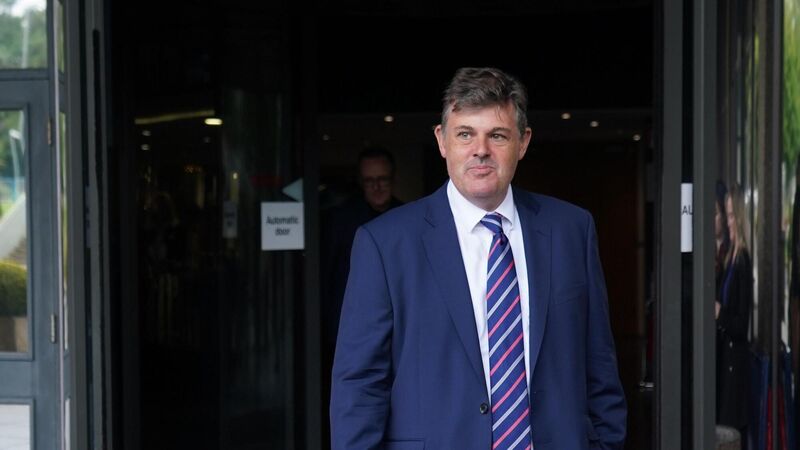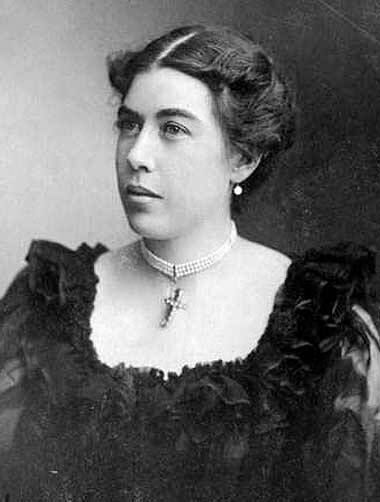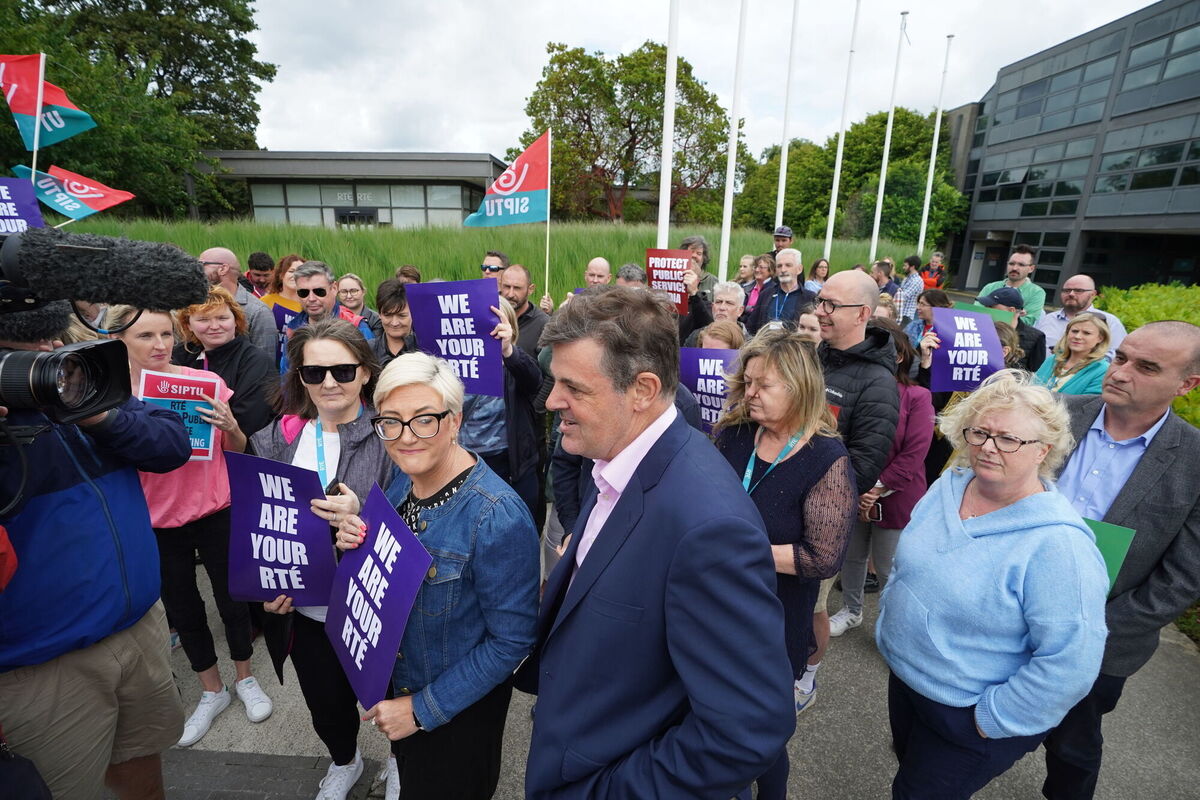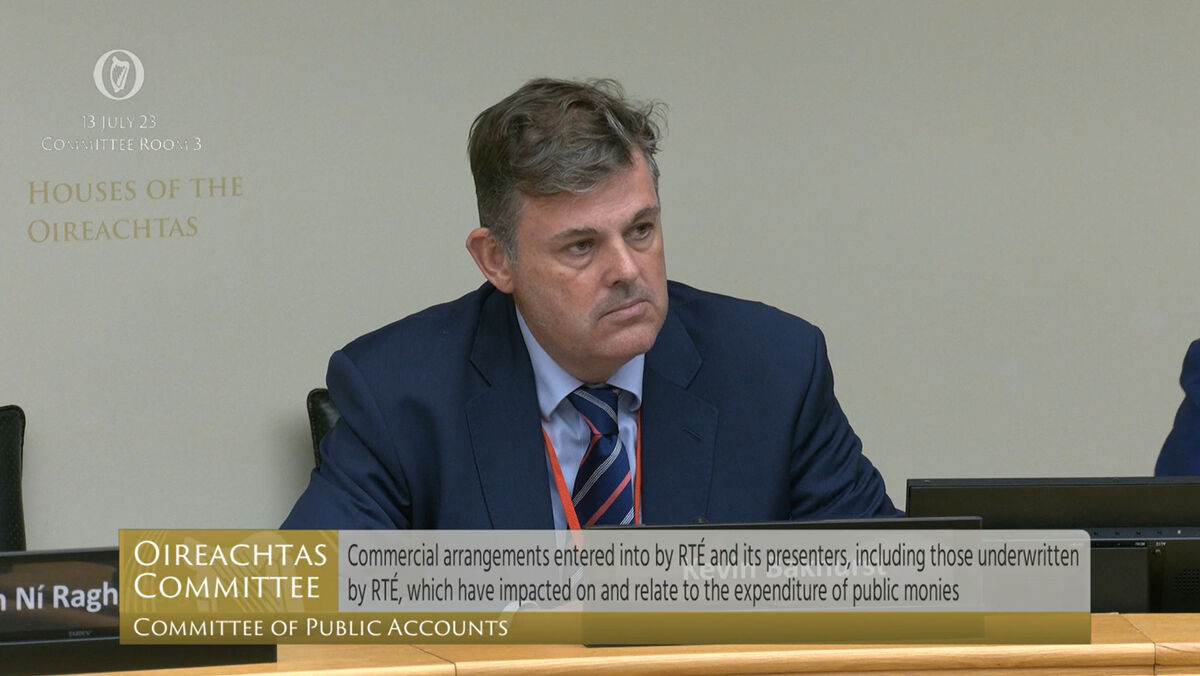Terry Prone: Ten traits that make Kevin Bakhurst the leader RTÉ needs right now

RTÉ director general Kevin Bakhurst joins a handful of people who came into their own in similarly chaotic circumstances.
One of them was “the unsinkable Molly Brown,” a passenger on the Titanic who took control of one of the lifeboats after the sinking and did a remarkable job of motivating the other survivors with her.
Another was Captain Bligh, who, when the mutineers on the Bounty shoved him into a long open boat with those officers who stayed loyal to him, managed to navigate that boat across thousands of miles of open sea and bring every one of his charges home alive.
A third is Aneurin Bevan, the British minister who — in the aftermath of the Second World War, while the Blitz debris was still being cleared off the streets of Britain’s cities — created the National Health Service, which was to transform public health in that country.
None of them, today, is an oft-quoted household name like Churchill. Each saved countless lives by stepping in when everything they were used to — and that those around them were used to — had been swept away.
The abolition of the norm arguably suited each of them. Nowhere to go but up. Just get on with it. Do the right thing and see where it gets you.

That’s where Bakhurst is at right now, and it’s not the worst position to be in. No previous director general was able to simply remove the existing lead team and reconstitute it on a temporary basis while they worked out who was productive on that team and who was less than productive. No previous DG was in so strong a negotiating position with government. No previous director general had the positive public profile this man has hewn for himself in his first weeks in office.
It’s often said that timing is everything, and the timing of Bakhurst’s arrival in the role, while ostensibly negative, is in fact overwhelmingly positive.
But timing is only part of it. The other part is represented by the actions the man has taken and the communication he has made since he arrived.

Any new CEO, whether in the public or private sector, would be well advised to learn from these 10 observations about the new man at the top in RTÉ. It would also be useful if Bakhurst learned from himself and stayed doing the right stuff. Because he’ll never have a better week than he’s just had.
Despite being recently ever-present, we still know little about him. He manages to be available but private. He has sufficiently internalised the authority derived from his BBC and Ofcom experience, not to mention his earlier stint in RTÉ, as to not need to refer to them.
He just deals with the thing in front of him, rather than worrying about how much he is appreciated.
Communicators who aren’t sure of themselves hate specific, singular questions and always want to extrapolate, in their answers, to the plural and general. Bakhurst is familiar with the wider picture but he doesn’t go there. It’s this singular episode in RTÉ’s history to which attention must be paid. So he sticks with it.
Into the vacuum created by his standing down of the ridiculously named executive board, he moved several brand new people and called the thing what it is — the lead team. He quickly recused himself from anything to do with Marty Morrissey, stating with admirable and unambiguous affection that Marty was his friend.
His decisions are quick but clever. While announcing that he wants — for everybody’s sake — to speedily decide Ryan Tubridy’s fate, he is uninfluenced by the twin pressures of Ryan’s appeal about possibly being out of a job by this weekend and the fact of the broadcaster’s continued invoicing of RTÉ. His decision will be informed by staff, by commercial advisers, and by intimations from politicians that while registering staff views is all very well, all very collegial, no job spec in RTÉ states that to be recruited or retained, the applicant must be loved by colleagues, nor should that impression be given.
Bakhurst is absorbing all of these strands of information and reflecting on them. He’ll make his decision in his own good time.
At least once, during his Oireachtas committee appearance, when he sought to refer a question to Aidan Lynch, the acting deputy director general, Bakhurst was swiftly stymied by the chair and gracefully ceded to him without pomposity or protest.

Booted and suited for formal parliamentary appearances, smart casual otherwise. No ostentation or conscious “branding’.
No management speak.
He wanders. Meets people. Listens to them. Asks questions. But the great thing is, he knows he doesn’t have to ask many questions. Just shut up and pay attention. Give staff the unmatchable free gift of his attention.
MBWA works. Always has. Hasn’t been much in evidence in RTÉ in recent years.
His new lead team might emulate him. (Indeed, if he was feeling radical, he could move the managers out of their dedicated building and scatter them among the workers.)
It isn’t just that he answers questions from staff, although he does. Or that he answers questions in public briefings, although he does that, too. And does it well — he instinctively and totally turns to the questioner, accepting the question as a gift rather than as a thrown hand grenade.
In his first fortnight, he hasn’t just gone on RTÉ’s programmes but on several other stations as well. None of the interviews were the softball tell-us-all-about-yourself puff pieces new CEOs tend to favour. They were straight-in crisis interviews.
Bakhurst’ s appearances were notable for gentle resolution. He knew what he could answer and what he couldn’t properly answer. He explained the rationale behind not answering and was unbothered when interviewers revisited the same question in different words. No previous RTÉ DG did anything comparable.
Being so accessible to general media isn’t likely to continue at this level, nor should it. He isn’t the personification of RTÉ.
As the newly- or recently-appointed top managers get their feet under their desks, they should also get their feet under studio desks. They’re answerable and they’re answerable to more than RTÉ. That’s the tough part of public service broadcasting.
No need.
He already has a nickname: “Best, Kevin” because of the brief notes he sends to people involved in a production he’s seen or listened to. Those notes always end “Best, Kevin”. Great management. And a lovely nickname.






